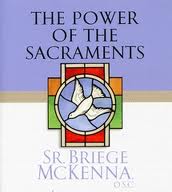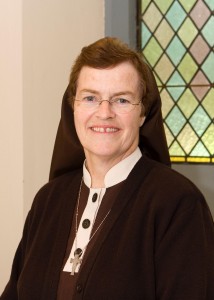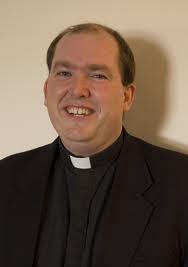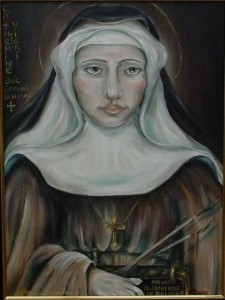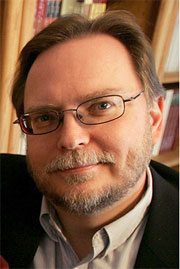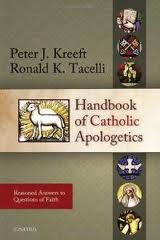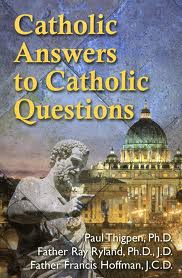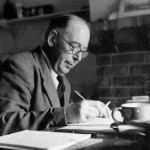In a recent Catechesis I spoke of St Catherine of Siena. Today I would like to present to you another less well known Saint who has the same name: St Catherine of Bologna, a very erudite yet very humble woman. She was dedicated to prayer but was always ready to serve; generous in sacrifice but full of joy in welcoming Christ with the Cross. Catherine was born in Bologna on 8 September 1413, the eldest child of Benvenuta Mammolini and John de’ Vigri, a rich and cultured patrician of Ferrara, a doctor in law and a public lector in Padua, where he carried out diplomatic missions for Nicholas III d’Este, Marquis of Ferrara.
Not much information about Catherine’s infancy and childhood is available and not all of it is reliable. As a child she lived in her grandparents’ house in Bologna, where she was brought up by relatives, especially by her mother who was a woman of deep faith. With her, Catherine moved to Ferrara when she was about 10 years old and entered the court of Nicholas III d’Este as lady-in-waiting to Margaret, Nicholas’ illegitimate daughter. The Marquis was transforming Ferrara into a fine city, summoning artists and scholars from various countries. He encouraged culture and, although his private life was not exemplary, took great care of the spiritual good, moral conduct and education of his subjects. In Ferrara Catherine was unaware of the negative aspects that are often part and parcel of court life. She enjoyed Margaret’s friendship and became her confidante. She developed her culture by studying music, painting and dancing; she learned to write poetry and literary compositions and to play the viola; she became expert in the art of miniature-painting and copying; she perfected her knowledge of Latin. In her future monastic life she was to put to good use the cultural and artistic heritage she had acquired in these years. She learned with ease, enthusiasm and tenacity. She showed great prudence, as well as an unusual modesty, grace and kindness in her behaviour. However, one absolutely clear trait distinguished her: her spirit, constantly focused on the things of Heaven. In 1427, when she was only 14 years old and subsequent to certain family events, Catherine decided to leave the court to join a group of young noble women who lived a community life dedicating themselves to God. Her mother trustingly consented in spite of having other plans for her daughter. We know nothing of Catherine’s spiritual path prior to this decision. Speaking in the third person, she states that she entered God’s service, “illumined by divine grace… with an upright conscience and great fervour”, attentive to holy prayer by night and by day, striving to acquire all the virtues she saw in others, “not out of envy but the better to please God in whom she had placed all her love” (Le sette armi necessarie alla battaglia spirituali, [The seven spiritual weapons], VII, 8, Bologna 1998, p. 12). She made considerable spiritual progress in this new phase of her life but her trials, her inner suffering and especially the temptations of the devil were great and terrible. She passed through a profound spiritual crisis and came to the brink of despair (cf. ibid., VII, 2, pp. 12-29). She lived in the night of the spirit, and was also deeply shaken by the temptation of disbelief in the Eucharist.
After so much suffering, the Lord comforted her: he gave her, in a vision, a clear awareness of the Real Presence in the Eucharist, an awareness so dazzling that Catherine was unable to express it in words (cf. ibid., VIII, 2. pp. 42-46).
In this same period a sorrowful trial afflicted the community: tension arose between those who wished to follow the Augustinian spirituality and those who had more of an inclination for Franciscan spirituality. Between 1429 and 1430, Lucia Mascheroni, in charge of the group, decided to found an Augustinian monastery. Catherine, on the other hand chose with others to bind herself to the Rule of St Clare of Assisi. It was a gift of Providence, because the community dwelled in the vicinity of the Church of the Holy Spirit, annexed to the convent of the Friars Minor who had adhered to the movement of the Observance. Thus Catherine and her companions could take part regularly in liturgical celebrations and receive adequate spiritual assistance. They also had the joy of listening to the preaching of St Bernardine of Siena (cf. ibid., VII, 62, p. 26). Catherine recounts that in 1429 — the third year since her conversion — she went to make her confession to one of the Friars Minor whom she esteemed, she made a good Confession and prayed the Lord intensely to grant her forgiveness for all her sins and the suffering connected with them.
In a vision God revealed to her that he had forgiven her everything. It was a very strong experience of divine mercy which left an indelible mark upon her, giving her a fresh impetus to respond generously to God’s immense love (cf. ibid. IX, 2, pp. 46-48).
In 1431 she had a vision of the Last Judgement. The terrifying spectacle of the damned impelled her to redouble her prayers and penance for the salvation of sinners. The devil continued to assail her and she entrusted herself ever more totally to the Lord and to the Virgin Mary (cf. ibid., X, 3, pp. 53-54). In her writings, Catherine has left us a few essential notes concerning this mysterious battle from which, with God’s grace, she emerged victorious. She did so in order to instruct her sisters and those who intend to set out on the path of perfection: she wanted to put them on their guard against the temptations of the devil who often conceals himself behind deceptive guises, later to sow doubts about faith, vocational uncertainty and sensuality. In her autobiographical and didactic treatise, The Seven Spiritual Weapons, Catherine offers in this regard teaching of deep wisdom and profound discernment. She speaks in the third person in reporting the extraordinary graces which the Lord gives to her and in the first person in confessing her sins. From her writing transpires the purity of her faith in God, her profound humility, the simplicity of her heart, her missionary zeal, her passion for the salvation of souls. She identifies seven weapons in the fight against evil, against the devil:
1. always to be careful and diligently strive to do good;
2. to believe that alone we will never be able to do something truly good;
3. to trust in God and, for love of him, never to fear in the battle against evil, either in the world or within ourselves;
4. to meditate often on the events and words of the life of Jesus, and especially on his Passion and his death;
5. to remember that we must die;
6. to focus our minds firmly on memory of the goods of Heaven;
7. to be familiar with Sacred Scripture, always cherishing it in our hearts so that it may give direction to all our thoughts and all our actions.
A splendid programme of spiritual life, today too, for each one of us!
In the convent Catherine, in spite of being accustomed to the court in Ferrara, served in the offices of laundress, dressmaker and breadmaker and even looked after the animals. She did everything, even the lowliest tasks, with love and ready obedience, offering her sisters a luminous witness. Indeed she saw disobedience as that spiritual pride which destroys every other virtue. Out of obedience she accepted the office of novice mistress, although she considered herself unfit for this office, and God continued to inspire her with his presence and his gifts: in fact she proved to be a wise and appreciated mistress. Later the service of the parlour was entrusted to her. She found it trying to have to interrupt her prayers frequently in order to respond to those who came to the monastery grill, but this time too the Lord did not fail to visit her and to be close to her. With her the monastery became an increasingly prayerful place of self-giving, of silence, of endeavour and of joy. Upon the death of the abbess, the superiors thought immediately of her, but Catherine urged them to turn to the Poor Clares of Mantua who were better instructed in the Constitutions and in religious observance. Nevertheless, a few years later, in 1456, she was asked at her monastery to open a new foundation in Bologna. Catherine would have preferred to end her days in Ferrara, but the Lord appeared to her and exhorted her to do God’s will by going to Bologna as abbess. She prepared herself for the new commitment with fasting, scourging and penance. She went to Bologna with 18 sisters. As superior she set the example in prayer and in service; she lived in deep humility and poverty. At the end of her three-year term as abbess she was glad to be replaced but after a year she was obliged to resume her office because the newly elected abbess became blind. Although she was suffering and and was afflicted with serious ailments that tormented her, she carried out her service with generosity and dedication. For another year she urged her sisters to an evangelical life, to patience and constancy in trial, to fraternal love, to union with the divine Bridegroom, Jesus, so as to prepare her dowry for the eternal nuptials. It was a dowry that Catherine saw as knowing how to share the sufferings of Christ, serenely facing hardship, apprehension, contempt and misunderstanding (cf. Le sette armi spirituali, X, 20, pp. 57-58). At the beginning of 1463 her health deteriorated. For the last time she gathered the sisters in Chapter, to announce her death to them and to recommend the observance of the Rule. Towards the end of February she was harrowed by terrible suffering that was never to leave her, yet despite her pain it was she who comforted her sisters, assuring them that she would also help them from Heaven. After receiving the last Sacraments, she give her confessor the text she had written: The Seven Spiritual Weapons, and entered her agony; her face grew beautiful and translucent; she still looked lovingly at those who surrounded her and died gently, repeating three times the name of Jesus. It was 9 March 1463 (cf. I. Bembo, Specchio di illuminazione, Vita di S. Caterina a Bologna,Florence 2001, chap. III). Catherine was to be canonized by Pope Clement XI on 22 May 1712. Her incorrupt body is preserved in the city of Bologna, in the chapel of the monastery of Corpus Domini. Dear friends, with her words and with her life, St Catherine of Bologna is a pressing invitation to let ourselves always be guided by God, to do his will daily, even if it often does not correspond with our plans, to trust in his Providence which never leaves us on our own. In this perspective, St Catherine speaks to us; from the distance of so many centuries she is still very modern and speaks to our lives.
She, like us, suffered temptations, she suffered the temptations of disbelief, of sensuality, of a difficult spiritual struggle. She felt forsaken by God, she found herself in the darkness of faith. Yet in all these situations she was always holding the Lord’s hand, she did not leave him, she did not abandon him. And walking hand in hand with the Lord, she walked on the right path and found the way of light.
So it is that she also tells us: take heart, even in the night of faith, even amidst our many doubts, do not let go of the Lord’s hand, walk hand in hand with him, believe in God’s goodness. This is how to follow the right path!
And I would like to stress another aspect: her great humility. She was a person who did not want to be someone or something; she did not care for appearances, she did not want to govern. She wanted to serve, to do God’s will, to be at the service of others. And for this very reason Catherine was credible in her authority, because she was able to see that for her authority meant, precisely, serving others.
Let us ask God, through the intercession of Our Saint, for the gift to achieve courageously and generously the project he has for us, so that he alone may be the firm rock on which our lives are built. Thank you.
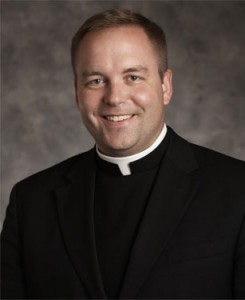 Introduction – Whether it’s to the priesthood, religious life, married life…discerning what our vocation is can be a challenge, but it doesn’t have to be. Fr. Hoesing discusses what discernment is, what the process is like, and what can help guide us along the way.
Introduction – Whether it’s to the priesthood, religious life, married life…discerning what our vocation is can be a challenge, but it doesn’t have to be. Fr. Hoesing discusses what discernment is, what the process is like, and what can help guide us along the way.
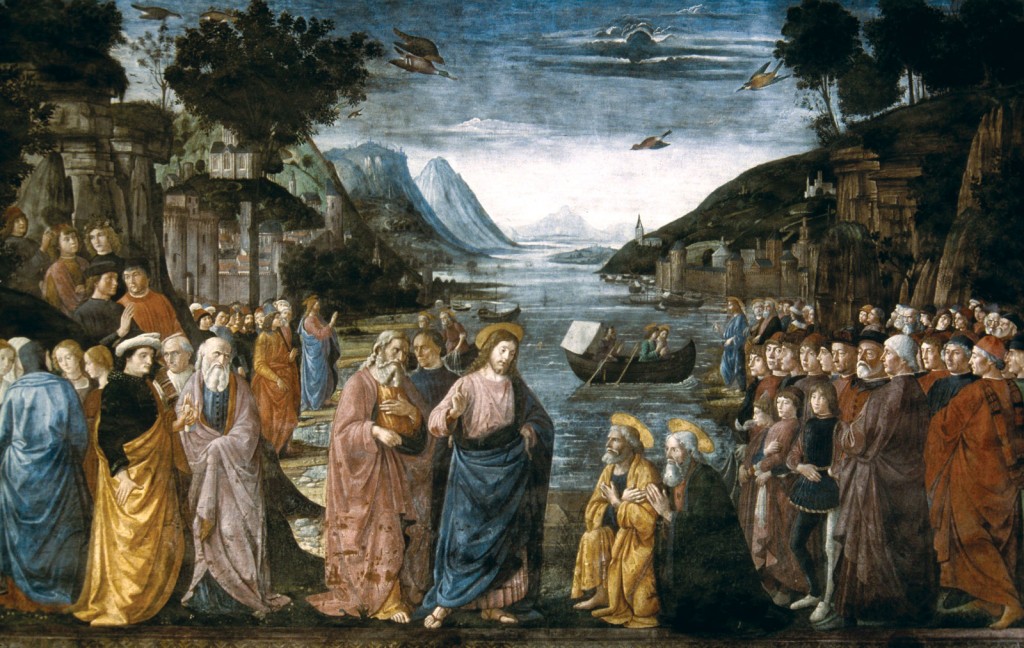


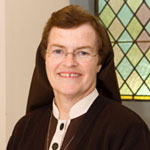 all of us in the Church! “The Power of the Sacraments” is a beautiful work which helps us all to appreciate the gift of grace that flows through the sacraments. There is such a hunger in the hearts of God’s children today for healing and peace. Sr. Briege, in her beautiful maternal nurturing way, helps us to see that the answer is right in front of us reaching out to us right now…he is Jesus Christ. “Miracles Do Happen” is her beautiful book recounting her miraculous healing and her call to mission to the world. It also expresses her great love and concern for the priesthood. Her insights are tremendous…her love for Christ and her bride, the Church, is a glorious witness and light for today’s world. She is truly one of the most inspiring persons I have ever encountered!
all of us in the Church! “The Power of the Sacraments” is a beautiful work which helps us all to appreciate the gift of grace that flows through the sacraments. There is such a hunger in the hearts of God’s children today for healing and peace. Sr. Briege, in her beautiful maternal nurturing way, helps us to see that the answer is right in front of us reaching out to us right now…he is Jesus Christ. “Miracles Do Happen” is her beautiful book recounting her miraculous healing and her call to mission to the world. It also expresses her great love and concern for the priesthood. Her insights are tremendous…her love for Christ and her bride, the Church, is a glorious witness and light for today’s world. She is truly one of the most inspiring persons I have ever encountered!